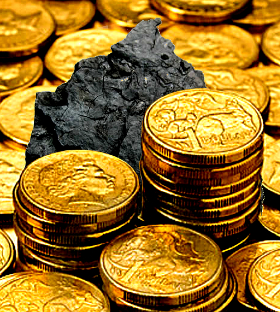Adani loan faces veto
 Queensland’s premier says her government will not support a NAIF loan for Adani.
Queensland’s premier says her government will not support a NAIF loan for Adani.
The Indian mining giant says it needs a $1 billion loan from the Northern Australia Infrastructure Fund (NAIF) to build a rail link for its planned Carmichael coal mine in north Queensland.
Premier Annastacia Palaszczuk says she will now support the concessional Federal Government loan after it was revealed that her partner, Shaun Drabsch, worked on Adani's NAIF application with his employer, PricewaterhouseCoopers (PwC), which acted for the Indian mining company.
She said she would exercise her government's “veto” to not support the loan to avoid a smear campaign from the opposition.
The federal Northern Australia Minister Matt Canavan said it would seriously jeopardise the mine.
“So this decision by Annastacia Palaszczuk certain potentially puts thousands of jobs at risk, a multi-billion-dollar project at risk,” Mr Canavan said.
“The rules are clear here that for a loan to be made under the Northern Australia infrastructure facility, a state government must sign the project's finance documents and co-operate with us.
“It seems strange that a situation would be allowed to emerge where a premier's partner could completely stop a government from making a decision on a multi-million-dollar project.”
The veto needs the endorsement of Queensland Opposition Leader Tim Nicholls as the government would be in caretaker mode until an upcoming election.
Ms Palaszczuk says she does not think the loan will affect the viability of the project.
Meanwhile, Adani Australia general manager of corporate affairs and business development, Muthuraj Guruswamy, has addressed criticisms of the company’s project.
Mr Guruswamy Adani is meeting its UN sustainability targets for all three elements of the Carmichael project, including sea, rail and the mine itself.
Mr Guruswamy was also keen to plug his company’s renewable projects and community investment, including the 648MW Kamuthi Solar Power Project.
“At Adani, we believe in investing back in the community,” he said at the International Mining and Resources Conference (IMARC) in Melbourne.
“Particularly in India, where we talk about giving education to the girls, and simple things like toilet facilities, sewerage in villages and medical treatment.
“One thing people are not aware of about India is that there is no safety net like in Australia or America,” he said.
“In India if I lose my job, or my children are not taking care of me, I will literally be out on the street if I do not have a house.
“We take pride in talking about nation building; if you don’t have education the country is not going to grow and it comes back to Australia, and our work with Indigenous communities […] I am sure when we start shipping coal in 2020 we will be able to provide a whole lot more to these communities.”







 Print
Print